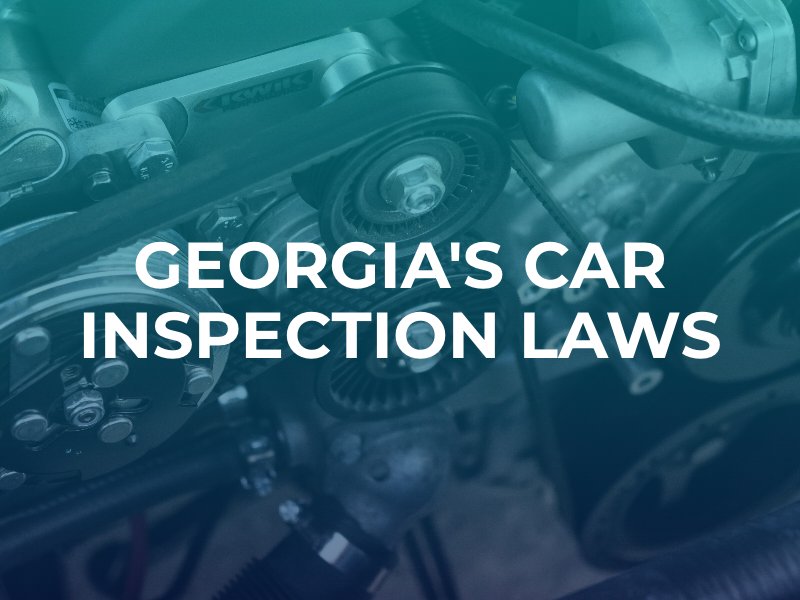Car Inspection Laws In Georgia
States around the country have varying laws about vehicle inspections. Some states, such as California, are fairly strict about having vehicles inspected to meet certain requirements, particularly emissions requirements. Other states are much more lax about vehicle inspections. Residents in Georgia need to be aware that they do have certain requirements for vehicle inspections each year. Additionally, commercial vehicle drivers face more stringent inspection requirements and are typically governed by both state and federal law. Here, we want to review some of the basic vehicle inspection laws in Georgia. We strongly recommend that you continue your research into vehicle inspections to ensure you remain legal on the roadway.

Vehicle Inspections For Traditional Passenger Vehicles in Georgia
Every vehicle in Georgia must go through a safety inspection each year. In some parts of the state, this safety inspection includes any missions inspection, which is often referred to as a smog inspection. All vehicles registered in the state of Georgia must be inspected annually prior to the registration date for the vehicle (the vehicle owner’s birthday). It is strongly recommended that you get your vehicle tested four to six weeks before the registration date to give you time to perform any necessary repairs that may be required.
Georgia emissions testing is required for all gas-powered vehicles that are older than three years and not older than a 1993 model or for all light-duty trucks that way less than 8,500 pounds. However, emissions testing is only required in the following counties: Cherokee, Clayton, Cobb, Coweta, DeKalb, Fayette, Forsyth, Fulton, Gwinnett, Henry, Paulding, and Rockdale.
Emissions tests, should they be required for your vehicle, are valid for one year. If your vehicle is required to undergo emissions testing, it will need to have this test every year before you can renew your registration.
Vehicle Inspections For Commercial Vehicles in GA
The Georgia Department of Transportation (DOT) has many commercial vehicle regulations in place to ensure the roadways are safe. Commercial vehicles can include trucks, buses, vans, construction vehicles, garbage vehicles, and more. Operators of these vehicles must comply with DOT regulations or face significant penalties.
Any vehicle in Georgia that has a gross vehicle weight rating (GVWR) of 10,001 pounds or more must have a vehicle identification number and a US Department of Transportation number. Drivers of the vehicles must also have a medical exam certificate. Vehicles of this weight must carry a fire extinguisher and display reflective safety triangles. All trailers attached to vehicles of this weight must be equipped with brakes, reflectors, and lights.
Most commercial vehicles are regulated by the state DOT as well as the US DOT. Commercial trucks and buses also face further requirements from the Federal Motor Carrier Safety Administration (FMCSA). Commercial vehicle owners and operators must ensure that they conduct the required inspections and maintenance, or they can face significant penalties, including the loss of their license to operate, the loss of their DOT numbers, and more.
Securing An Attorney After An Accident
If you or somebody you love has been injured in an Atlanta car accident due to the careless or negligent actions of another driver, you may need to seek assistance from an attorney. Whether your accident involved a traditional passenger vehicle or a commercial vehicle, the reality is that securing the compensation you are entitled to can be difficult. An attorney can use their resources to conduct a thorough investigation into the incident and help you obtain maximum compensation for what happened.